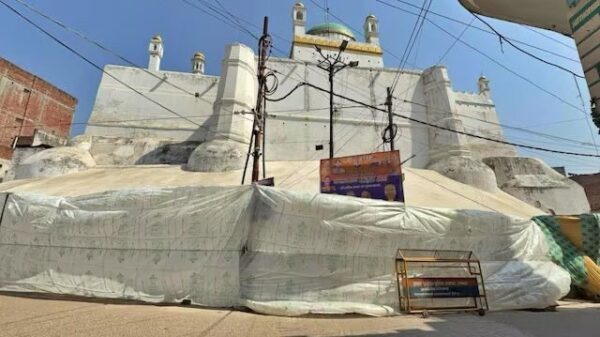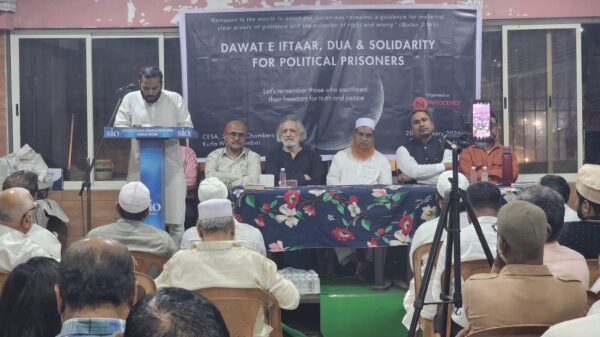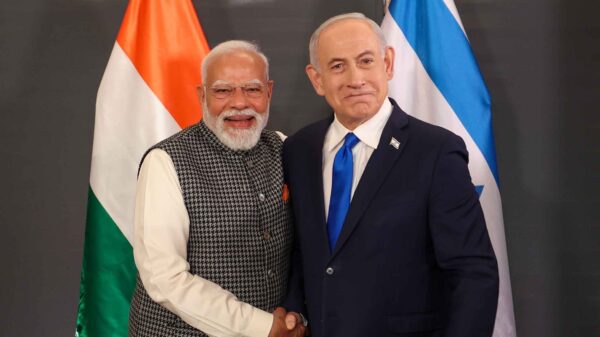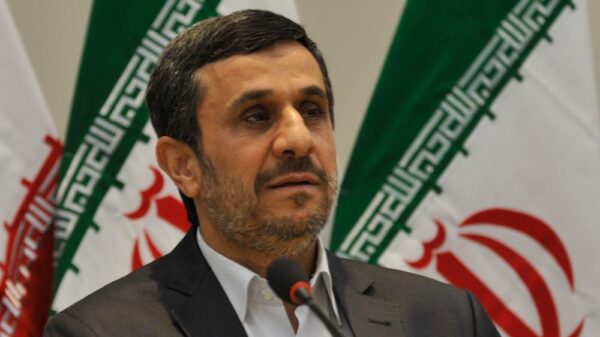Ahead of the discussion on the Waqf Bill, 2024, in the Lok Sabha today, Union Minister Kiren Rijiju alleged that several Congress leaders privately support the legislation despite showing resistance in public.
“Those who are opposing Waqf Bill are doing so for political reasons. Many Congress leaders and opposition parties privately say that this bill is needed, but they’re opposing it for vote bank,” Rijiju said.
However, several opposition parties have announced their decision to vote against the Waqf Bill in the Lok Sabha. The parties opposing the Waqf Bill include Congress (99 MPs), Samajwadi Party (37), Trinamool Congress (28), DMK (22), Shiv Sena-UBT (9), NCP-SP (8), CPI-M (4), RJD (4), Aam Aadmi Party (3), JMM (3), IUML (3), and J-K National Conference (2), along with 13 other parties.
The opposition has vowed to press for a vote on the Waqf Bill, setting the stage for a heated parliamentary debate.
Rijiju has claimed that Waqf bill aims to protect the interests of the most vulnerable, impoverished sections of Muslims in the country.
Senior AIMPLB (All India Muslim Personal Law Board) executive, Maulana Khalid Rasheed Firangi Mahali of Lucknow said, “The AIMPLB and other Muslim organizations have conveyed their concerns over the Waqf Bill to the Joint Parliamentary Committee (JPC), but they were not considered.” He expressed that the amendments are not in interest of the Waqf properties, pointing that Waqf is an integral part of Shari’ah.
Waqf Bill Sets Stage for Targeting Other Communities
Congress MP Gaurav Gogoi, speaking in Parliament, condemned the government over the Waqf (Amendment) Bill, warning that it could set a precedent for targeting other religious communities in the future.
expressing concerns over the potential implications of the legislation. His remarks highlighted the opposition’s concerns about the broader impact of the Bill beyond its immediate scope.
The bill’s proposed amendments may infringe upon the rights of religious communities to manage their own affairs, potentially violating Article 26 of the Indian Constitution.
Key Concerns About the Waqf Bill
The bill proposes that state governments nominate members to the Waqf Boards, including two non-Muslims, and representatives from various Muslim sects such as Shia, Sunni, Bohra, and Agakhani.
The amendments provide the government with a greater say in determining whether a property is a Waqf asset. This has led to fears of state overreach, potentially setting a precedent for further government control over religious endowments across different faiths.
Moreover, experts have warned that the Bill’s provisions could set a dangerous precedent by allowing the government to regulate other religious institutions.
If enacted, it could open the door to similar amendments for Hindu, Sikh, or Christian religious trusts, further expanding state influence over religious affairs.
































































